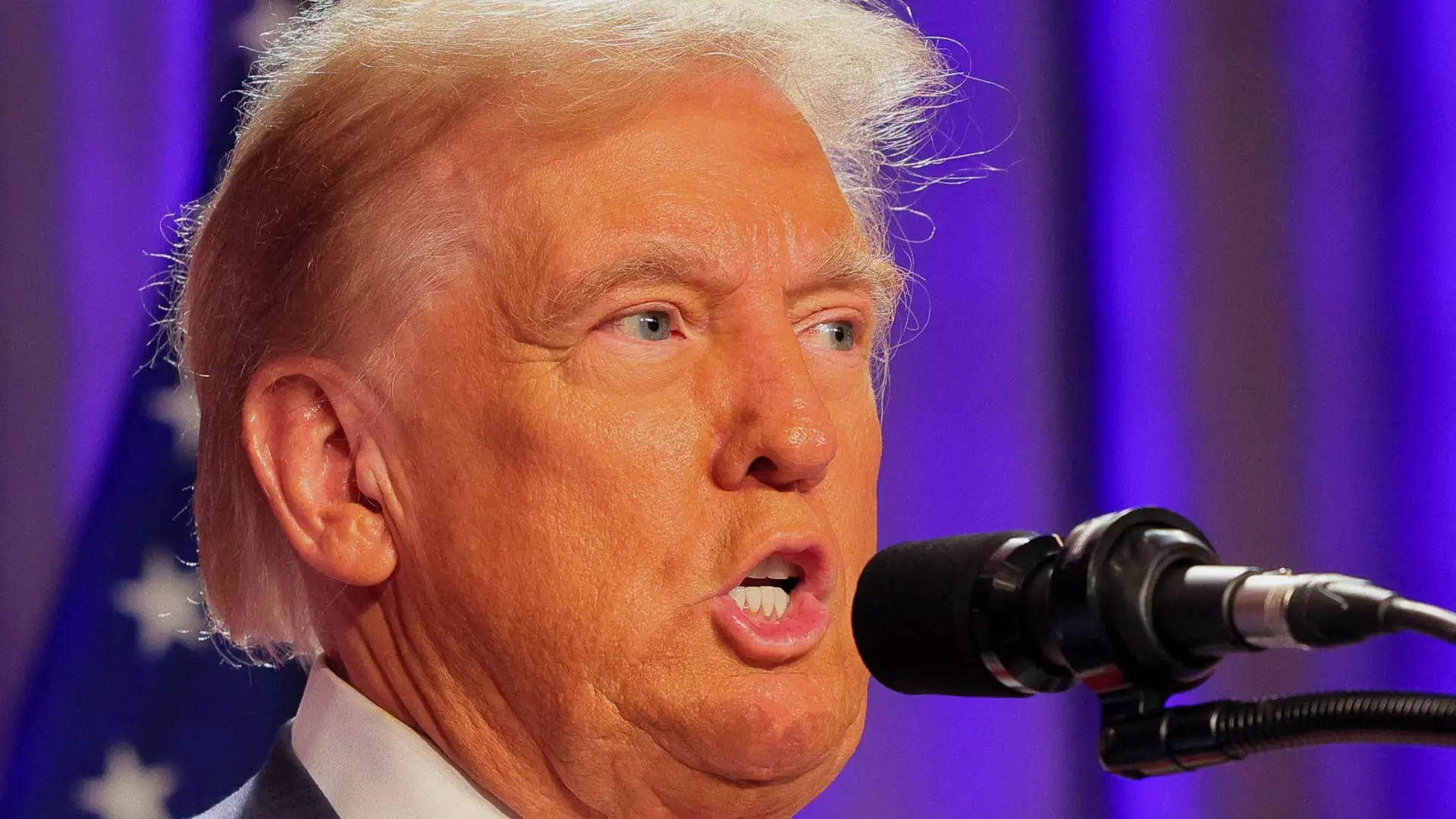The latest interview with Donald Trump as the newly elected president unveils a potential pivot in U.S. foreign policy, particularly concerning military support to Ukraine. This shift raises significant questions regarding America’s commitment to international alliances and the balance of power in key geopolitical arenas.
Challenging European Responsibility
During his discussion with NBC’s Kristen Welker, Trump explicitly queried the distribution of military aid, emphasizing that while the U.S. has contributed a staggering $350 billion to Ukraine, Europe has only allocated around $100 billion. This assertion brings to light a noteworthy point of contention—why isn’t Europe matching U.S. contributions in a conflict that directly threatens its borders? Trump’s insistence on equalizing support suggests a clear message: he believes Europe must take on a more substantial role in its defense, reflecting a broader notion that American taxpayers should not bear the brunt of global security costs. This sentiment echoes through his previous discussions around NATO, where he has been vocal about European allies needing to “pay their bills” for collective security.
The president-elect’s remarks may resonate with many who view international aid as an area of American overreach and financial burdens. Trump’s critique of Europe’s commitment invites a larger conversation about the shared responsibilities of NATO member states and whether the current distribution of resources and responsibilities is equitable and sustainable.
Further complicating the debate around military assistance is Trump’s perspective on the Ukrainian leadership. Trump has provocatively referred to Ukrainian President Volodymyr Zelenskyy as “the greatest salesman” among politicians. This characterization implies that Trump views the wave of U.S. aid as a result of Zelenskyy’s persuasive diplomatic efforts rather than a response to Ukraine’s dire needs in the conflict with Russia. Such a viewpoint raises concerns about the humanitarian aspects of international relations and the reliance on charismatic leadership to advocate for necessary support.
Additionally, Trump’s suggestion that U.S. assistance may dwindle under his administration is illustrative of his transactional approach to foreign policy. He previously exhibited this style during his first term, threatening to withdraw from NATO unless European nations increased their military budgets. This transactional mentality reshapes the narrative around global conflicts, wherein aid becomes less about moral obligation and more about balancing power and finances.
Conversations of Ceasefire and Negotiation
Trump’s interactions in Paris with Zelenskyy and French President Emmanuel Macron symbolize a recognition of the need for diplomatic dialogue amid warfare. The call for an immediate ceasefire and the commencement of negotiations mark a significant shift in Trump’s rhetoric, emphasizing his desire to broker peace. His social media post describing the Ukrainian conflict as one that “should never have started” reflects a critical perspective on the escalation of international tension—a viewpoint that may appeal to constituents weary of prolonged military engagements.
Moreover, Trump’s proclamation that he could negotiate an end to the conflict within a day of taking office, leveraging his reputed relationship with Vladimir Putin, unveils further layers to his foreign policy vision. Despite skepticism over whether such a swift resolution is realistic, it emphasizes a self-assured stance that frames Trump as a potential peacemaker among world leaders, rather than a perennial combatant.
As Trump draws attention to his ongoing communications with notable leaders like Chinese President Xi Jinping, the discussion of Taiwan’s fate underscores the complexity of global geopolitics. By remaining somewhat ambiguous about U.S. intervention in the event of a Chinese invasion, Trump reflects a cautious stance—balancing the need for American integrity with a diplomatic approach that emphasizes negotiation over confrontation. This duality encapsulates Trump’s overarching strategy, which often seeks to de-escalate tensions while ensuring U.S. interests are prioritized.
Moreover, Trump’s commentary on Russia’s diminishing interest in Syria post-Ukraine highlights a broader implication of shifting allegiances and national interests amid regional conflicts. His framing of Assad’s status relative to Putin’s waning support reflects an understanding of how interconnected various geopolitical crises have become—a perspective that may reshape future U.S. engagement in such matters.
Trump’s interview on NBC signifies a potential reorientation of American foreign policy that entails a re-evaluation of commitments to traditional allies and a strong emphasis on negotiation. Whether this results in sustainable peace or simply a recalibration of military priorities remains to be seen, but it undeniably sets the stage for a tumultuous era in international relations as the global community watches with bated breath.


Leave a Reply